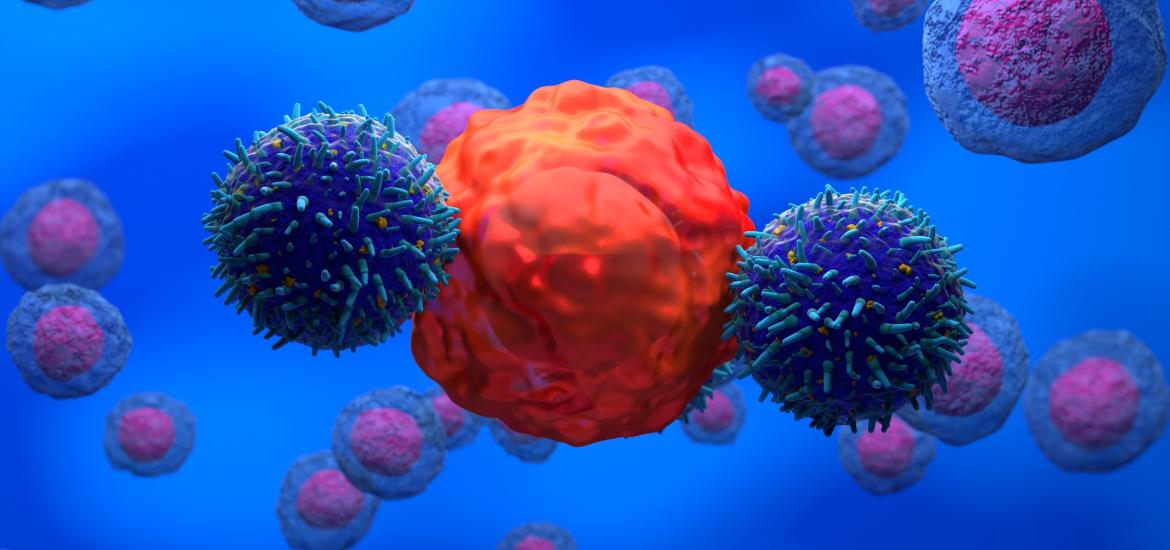
Crispr abandons first-generation Car-T projects
The company hopes that new edits could solve the relapse problem with allogeneic Car-Ts.
The company hopes that new edits could solve the relapse problem with allogeneic Car-Ts.

It’s been clear for some time that allogeneic Car-T has an issue with lack of durability. So Crispr Therapeutics’ move yesterday away from its first generation of projects, towards a new and supposedly improved pipeline, looks sensible – if the company can indeed crack this conundrum.
Crispr is not the only allogeneic player to tweak its approach: Allogene has shifted focus from ALLO-501 to ALLO-501A, while Precision Biosciences had been looking to a next-generation asset until it sold its lead project azercabtagene zapreleucel to Imugene this year. Meanwhile, the likes of Caribou and Sana are claiming improvements with their therapies.
All of these groups will now have to prove that these tweaks have made a difference.
Out with the old
Until yesterday Crispr’s lead projects had been CTX110 and CTX130, targeting CD19 and CD70 respectively. The group reported its first data on CTX110 just over two years ago, highlighting a 58% ORR in the Carbon trial; however, by around six months most of the initial responders had relapsed.
The same pattern was seen in the Cobalt-Lym study of CTX130 at EHA in 2022.
Now the group has reported data from 31 patients in Part B of Carbon, which involved redosing with CTX110. This showed a six-month complete response rate of 23%, not much of an improvement over the 19% seen in the part A data released last year, evaluating a single dose with the option of redosing.
In with the new
Crispr’s focus now is on CTX112 and CTX131, also targeting CD19 and CD70.
The first-gen CTX110 and CTX130 had already included edits to knock out endogenous T-cell receptors, to reduce the risk of graft-versus-host disease, and major histocompatibility complex (MHC), to reduce the risk of immune rejection.
The next-gen projects include two further knockouts, of Regnase-1 and TGF-β receptor type 2, aiming to enhance potency and reduce T-cell exhaustion.
Others are taking different approaches. Allogene has removed its safety switch and tweaked manufacturing to produce ALLO-501A; an update at this year’s ASCO suggested that the project is not that different from ALLO-501 in terms of efficacy.
Precision’s PBCAR19B is designed to be an improvement over azer-cel: it expresses an anti-β2M shRNA, to help it evade rejection by the host’s T cells, and an HLA-E transgene to prevent rejection by NK cells. A phase 1 study is ongoing, according to clinicaltrials.gov, but this project is not mentioned on Imugene’s pipeline.
Caribou, meanwhile, claims to have the only allogeneic Car-T in the clinic with a PD-1 knockout, another edit designed to limit T-cell exhaustion. This year, that group provided some reassurance on the longevity of its lead contender, CB-010, although it still has much to prove.
Like Crispr, Sana is disrupting MHC expression in its project SC291, which is also modified to overexpress CD47 to help it evade the innate immune system. That company just reported a partial response in the first patient treated with SC291, but will need to produce data on more subjects to be considered a contender.
Crispr is also at an early stage with CTX112 and CTX131. As well as clinical trials that began this year in B-cell malignancies and solid tumours respectively, the group plans studies in autoimmune disease with CTX112, and in haematologic malignancies with CTX131, it said yesterday. Any emerging data will be closely watched to see whether it has resolved the relapse issue.
Notable allogeneic Car-T developers and next-gen strategies
| Company | Lead project(s) | Target | Trial | Note |
|---|---|---|---|---|
| Crispr Therapeutics | CTX112 | CD19 | NCT05643742 in 2L B-cell malignancies; plans in autoimmune disease | Company stopped development of first-gen CTX110 & CTX130 in Dec 2023; CTX112 & CTX131 incorporate knock-outs of Regnase-1 & TGFBR2 |
| CTX131 | CD70 | NCT05795595 in 2L solid tumours; plans in haematologic malignancies | ||
| Allogene | ALLO-501A | CD19 | Alpha-2 in 3L+ LBCL, data due YE 2024 | Company has moved from ALLO-501 to ALLO-501A; latter has had rituximab kill switch removed; company’s next-gen Cloak & Dagger platforms at preclinical stage |
| Caribou | CB-010 | CD19 | Antler in 2L lymphoma; dose-expansion data due in H1 2024 | Includes PD-1 knockout, designed to combat T-cell exhaustion |
| Imugene (via Precision BioSciences) | Azercabtagene zapreleucel | CD19 | Ph1b confirmatory study enrolling 10 DLBCL pts relapsed after auto-Car-T | Precision had been moving towards next-gen PBCAR19B, but sold azer-cel rights to Imugene in Aug 2023 |
| Poseida/Roche | P-BCMA-ALLO1 | BCMA | NCT04960579 in 2L MM; initial data at ASH 2023 | Poseida claims several design features that it says could confer advantages |
| Sana | SC291 | CD19 | PR in first pt in ph1 Ardent published in Blood, Dec 2023 | Designed to avoid immune rejection via disruption of MHC Class I & II expression & CD47 overexpression |
Source: OncologyPipeline.
1525













